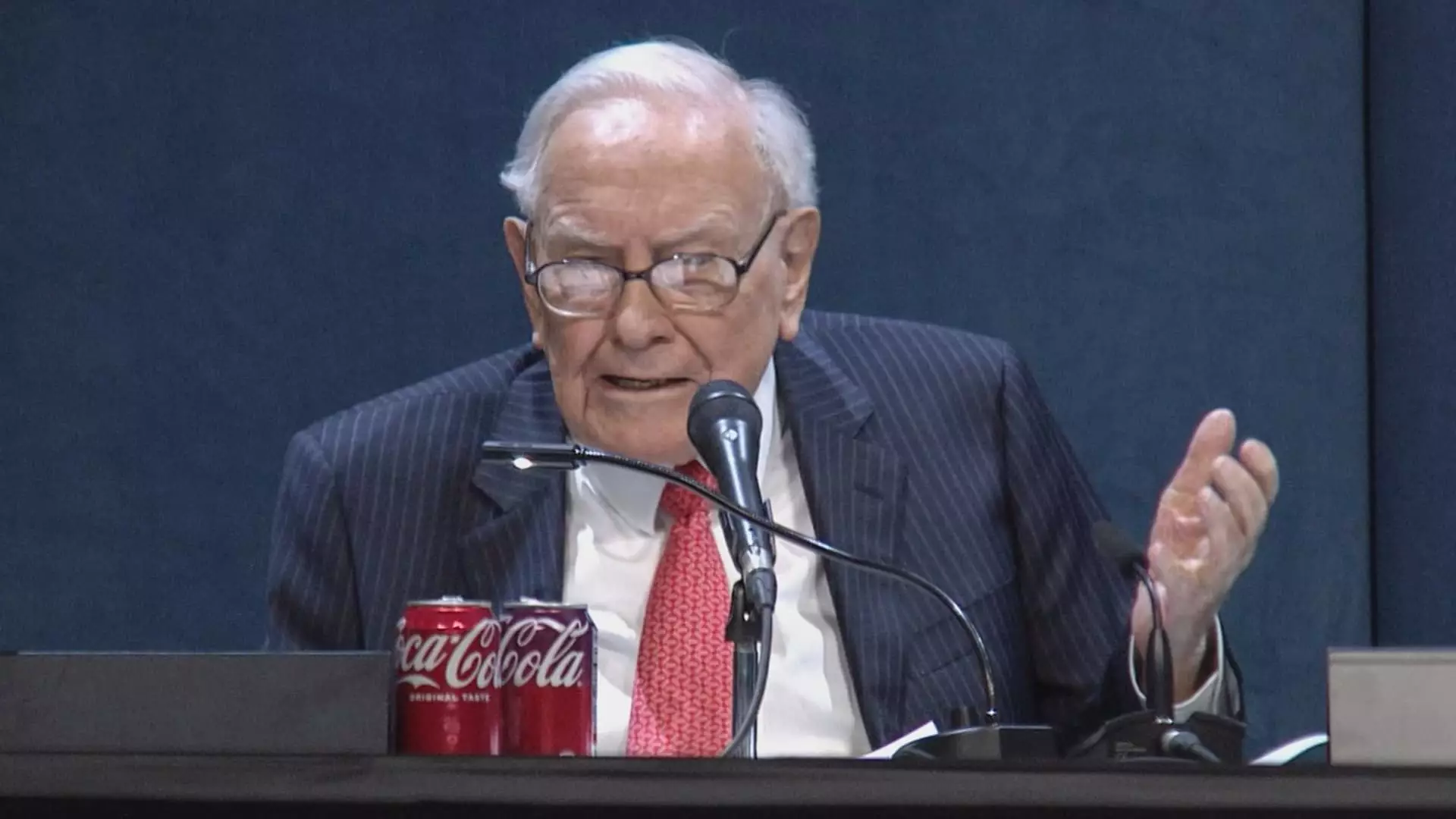In what should be a moment of confidence, Berkshire Hathaway’s latest financial results reveal a concerning dip in operating earnings, signaling turbulence beneath the surface of Warren Buffett’s once-steady empire. The 4% decline to $11.16 billion exposes vulnerabilities in an otherwise diversified conglomerate. It is undeniable that Buffett’s leadership has always symbolized resilience, yet these recent figures suggest a fragile undercurrent—especially given the broader economic uncertainties. While some sectors like railroad, energy, and retailing posted gains, the decline in insurance underwriting hits at Berkshire’s core, exposing the risks of over-reliance on a few profitable divisions. The market’s immediate reaction—more than 2% drop in both Class A and B shares—reflects investor unease about the sustainability of this performance. It raises the question: amidst the stormy economic climate, is Buffett’s legendary prudence enough to prevent a deeper downturn?
Strategic Missteps and the Kraft Heinz Write-down
Perhaps the most glaring sign of trouble is Berkshire’s massive write-down on its Kraft Heinz stake—an astonishing $3.8 billion loss that marks a rare misjudgment in Buffett’s investing career. The move underscores that even the most seasoned investors can miscalculate, especially in a rapidly changing marketplace where consumer preferences shift and corporate strategies evolve. The decision to record this loss hints at deeper issues within Kraft Heinz, notably its struggles to remain competitive and relevant in an industry facing increasing pressure from innovation and disruptors. Buffett’s admission that he overpaid for Kraft Heinz reveals a rare moment of humility from a man often seen as infallible. Yet, it also sparks doubts about Berkshire’s ability to adapt quickly and accurately assess emerging risks—an essential trait in today’s volatile economic landscape.
Cash Reserves and the Stagnation of Share Repurchases
One of the most perplexing aspects of Berkshire’s recent course is its stubborn retention of a massive cash hoard—$344.1 billion—paired with a deliberate halt on share buybacks. Historically, Buffett has been a vocal proponent of repurchasing undervalued shares as a way to create value. The decision to freeze buybacks in a market correction seems counterintuitive and signals a cautious stance that borders on hesitation. While maintaining liquidity can be justified in uncertain times, the absence of tangible investment opportunities or significant acquisitions suggests that Berkshire might be holding back due to a lack of confidence in the near-term landscape. This conservatism, combined with a net stock-selling streak for eleven consecutive quarters, raises questions about whether Buffett’s trusted investing strategies are losing their efficacy or if he simply perceives the market as too risky at this moment.
The Future Under New Leadership: A Critical Juncture
With Warren Buffett stepping back and Greg Abel set to take over as CEO in 2025, Berkshire faces a pivotal moment. Skeptics wonder if this transition will maintain the risk-averse culture that has safeguarded Buffett’s legacy or if it will open the door to more aggressive, perhaps ill-timed investments. Investors and critics alike must grapple with whether the new leadership will follow Buffett’s cautious yet opportunistic philosophy or be tempted to chase after fleeting gains in an unpredictable economy. While the cash reserves suggest that Berkshire remains prepared to seize opportunities, the absence of action in recent months indicates an internal dilemma—whether to wait for the storm to pass or to act decisively in a turbulent environment.
In essence, Berkshire Hathaway’s latest performance should serve as a wake-up call. Behind the facade of stability and financial might lies an organization grappling with internal challenges, strategic missteps, and uncertain leadership. The question is whether this is a transient phase or a harbinger of a broader transformation that could redefine the future of one of America’s most storied conglomerates.

